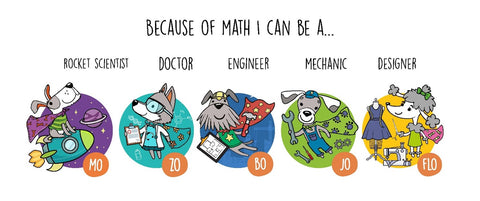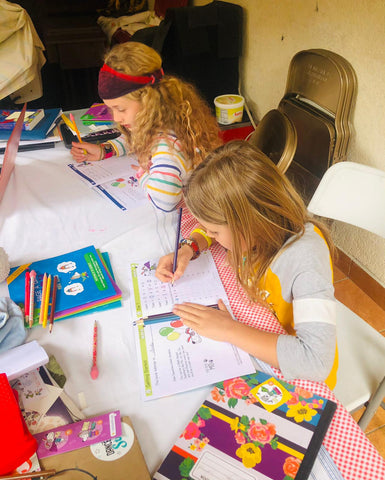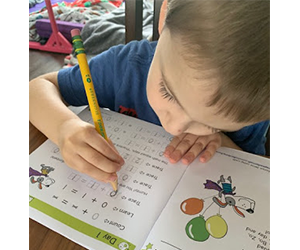
Why STEM Is Critical in Early Childhood Education
Today we hear a lot about schools putting renewed focus on science, technology, engineering, and math (often referred to as STEM) subjects. Often it’s middle schools and high schools offering new classes, receiving STEM-related grants, or providing educators with more STEM training. Elementary schools may have after-school STEM programs, but they are often geared toward the older students or limit the number of participants.
There are people who are concerned about increased technology in the classrooms, while others fear the arts will lose out when STEM is pushed, but I have a different issue with STEM being suddenly encouraged in middle school and high school. For many students, it’s already too late. STEM should be part of our children’s education starting in preschool.
When Are Children Ready for STEM?
There are some who balk at the idea of STEM in preschool. How can three-year-olds be expected to study engineering? Obviously science and technology education look different at three than at thirteen. I’m not talking about preschoolers building their own mousetrap cars or memorizing complicated words with long definitions. I’m talking about them having fun exploring cause and effect, making observations, and talking about why things happen. It can be as simple as comparing how quickly a leaf falls vs a rock or figuring out which toys float in the bathtub and which sink. As parents we sometimes need reminding that we don’t need a textbook to teach science or be scientists ourselves to get our kids interested in STEM.
and effect, making observations, and talking about why things happen. It can be as simple as comparing how quickly a leaf falls vs a rock or figuring out which toys float in the bathtub and which sink. As parents we sometimes need reminding that we don’t need a textbook to teach science or be scientists ourselves to get our kids interested in STEM.
Children are naturally curious about their environment. As I’m sure won’t surprise any parent, preschoolers ask an average of 76 information-seeking questions every hour. They already are tiny scientists! And it’s okay if you don’t have the answers to these questions. The questions are more important than the answers. What’s meaningful is having the conversation and figuring it out together. Parents sometimes introduce a bias against science because they themselves don’t feel confident in the subject. Don’t let your own discomfort around science or other subjects get in the way of your child learning. It’s completely appropriate to say, “That’s a great question! I don’t know the answer. Let’s look it up together!”
According to the Center for Childhood Creativity, before the age of one a child can make inferences, draw conclusions about cause and effect, and reason about the probability of events. Young children develop more than one million neural connections per second. Once these are developed, they go through a sort of pruning process in which synapses that are not being used are eliminated. That’s why it’s important to introduce science, math, and reading early.
Benefits of Early STEM
Research tells us that early education in STEM has many positive benefits, and not just within STEM subjects. Early STEM learning promotes socio-emotional development in children and helps with later learning in all subjects. Early learning in math and science improves language development, literacy, reading comprehension, and writing skills.
STEM learning is actually similar to language learning in that immersion as early as possible and in as many environments as possible leads to better learning. How many of us didn’t learn a foreign language until middle school or high school? While not impossible, we know that it’s much easier to learn a language when you’re younger. Science is the same way. Waiting until middle school or high school, or even late elementary school, to expose students to STEM makes it more difficult for them to become excited and learn.
Kids who engage in science activities from a young age develop positive attitudes about science. Science activities can be anything from baking to playing in the tub and questioning why things happen the way they do. This participation and excitement about science has been shown to correlate with later science achievement and even makes them more likely to pursue STEM careers. Even for those students that won’t end up working in the tech or science fields, STEM education promotes the kind of critical thinking skills that we all want our children to possess.

Dangers of No Early STEM
Part of the problem with introducing science later in a student’s education is that by then, many have already decided it’s not for them. Most young people’s view of and aspirations in science are formed during their primary years and solidified by age 14. By fourth grade, a third of students have already lost interest in science, and by eighth grade, that rises to half of all students.
Why does this matter? The Bureau of Labor Statistics says that between 2018 and 2028 there will be three percent growth in non-STEM occupations while STEM jobs will see growth of eight percent. Demand for these positions continues to rise, and 93 percent of STEM jobs have greater than average salaries.
So, am I saying that we should all want our children to go into STEM? No, of course not. We want our children to be able to grow up and do anything they want to. But by providing early exposure to math and science (or any other subject) in a way that’s fun, kids will be more excited and want to continue to explore.
Let kids be little scientists by fostering their curiosity about the world and encouraging them to ask more questions. That will make the road to becoming a big scientist (or anything else in the STEM field) easier.
About the Author and Creator of Page A Day Math

Janice Marks
Janice began her career in education to pursue teaching pre-algebra at BASIS Tucson North, a charter school currently ranked as the sixth-best STEM school in the country by Newsweek. There she found joy in teaching math, working with parents, and inspiring children to believe in themselves and thrive. This experience, along with helping her own children succeed in math, led her to develop the Page A Day Math system.





